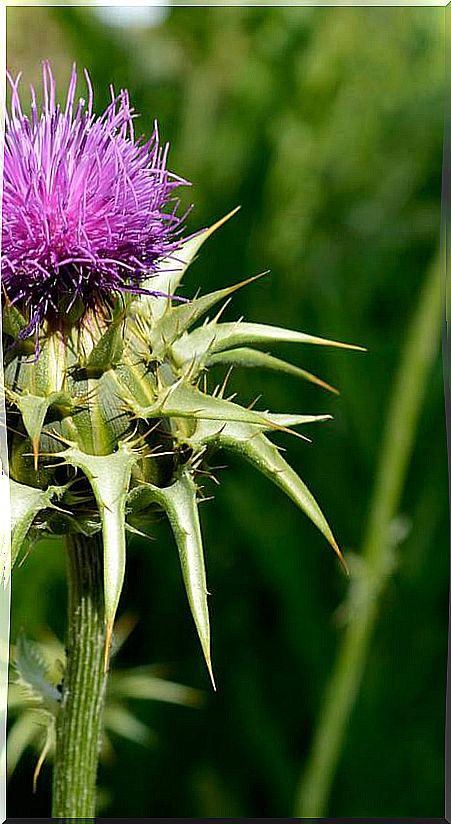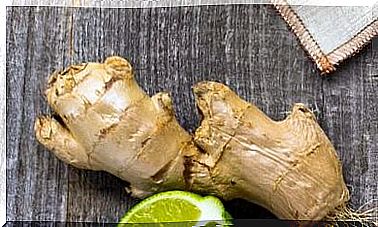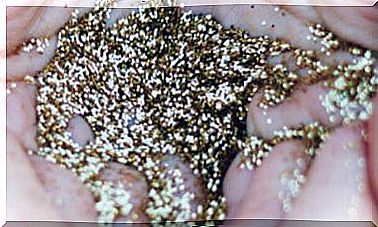Milk Thistle: The Most Effective Against Metastases
Spanish researchers prove that silibinin from milk thistle makes metastases in the brain reduce their size or even disappear.

The humble milk thistle, the same one that you find on the roads on any walk in the countryside, contains a substance that is capable of fighting brain metastases.
It is a discovery made by Spanish researchers and opens a new and hopeful path to one of the most deadly types of cancer.
Silibinin reduces metastases in the brain by up to 85%
It all started 7 years ago. After two years of work, in 2013, researchers and oncologists Javier Menéndez and Joaquim Bosch, from the Catalan Institute of Oncology (ICO), published several studies that demonstrated the anticancer activity of silibinin from milk thistle ( Silybum marianum ) in clinical trials. vitro and in mice.
The next step was the study with volunteer patients at the Josep Trueta University Hospital in Girona. The results, published in 2016 in the Oncotarget magazine , were so spectacular that the doctors called a press conference to explain it. Metastases had shrunk between 70 and 85% in two patients.
The story was in the media. But briefly, with little space. Without pain or glory. After all, perhaps they were doctors from the provinces and the discovery, a plant that you find on the roads on any walk in the country. One of those supplements that followers of natural therapies take.
An investigation by the CNIO
Researchers Menéndez and Bosch conspired to continue with their work on silibinin and got the National Cancer Research Center (CNIO) to bet on milk thistle.
The researcher Manuel Valiente organized a large international team of scientists who carried out a study with all the means of the most advanced science to confirm the anticancer properties and discover the mechanism of action of silibinin.
The work has been published in one of the reference journals for doctors around the world, Nature Medicine, and says: the silibinin of milk thistle, the plant that you find on the roads, reduces the size of brain metastases and lengthens the life of patients without producing negative side effects.
Now the space given to the news has been greater (without reaching the covers) and the humble milk thistle sneaks into the news stories again.
Metastases disappeared in three patients
In the CNIO study, carried out in collaboration with Hospital Doctor Trueta, silibinin was administered along with conventional treatment to a group of 18 lung cancer patients who had developed metastases in the brain.
In 13 patients, silybin reduced the size of metastases, which otherwise would not have stopped. Not only only: in three of them they disappeared completely and, on average, survival was multiplied by three. A plant that you find on the roads.
Silibinin is on the way to being administered protocol to patients. But it is still an experimental therapy, so it will take perhaps another couple of years for all patients to benefit. That is as long as the researchers get the necessary funding.
Currently, metastases are treated, when possible, with surgery and radiation therapy, which can produce serious side effects and do not greatly extend survival expectations, or with effective drugs in a minority of patients with specific mutations.
More studies on the anticancer properties of silibinin
The ICO and CNIO studies have achieved the most advanced results, but they are not the only ones that have worked with the anticancer properties of milk thistle.
A study proved that the daily administration of silymarin (160 mg) together with other nutraceuticals (soy isoflavones, folic acid, vitamin C, d-acetyl-l-cysteine, selenium and lycopene) was able to reduce the markers of prostate cancer.
It has also been used experimentally against breast cancer, leukemia, and other types of tumors.
Milk thistle will lead to discovering new therapies
Milk thistle, silibinin, has not only been shown to be incredibly effective, it has revealed to researchers previously unknown ways to attack cancer. Because they have observed that silibinin inhibits a molecule called STAT3 in a type of brain cells called astrocytes.
In health, astrocytes are a kind of defender of neurons. They are capable of eliminating precancerous cells that reach the brain. And you don’t even know what could have happened.
But cancer cells that travel from the lung or another organ and reach the brain can with them and do their part, so that they end up collaborating in the formation of metastases.
Astrocytes not only do not kill these cancer cells, but defend them against immune cells. But if the STAT3 molecule is blocked, as silybin does, things go back to normal.
The researchers think that if silybin succeeds in doing this, it is possible that other substances that act in this way could be found or created. But, for now, the silibinin from milk thistle that you find on the roads is the best we have, and without side effects.
May help 30% of patients at risk of metastasis
If all goes well, sooner or later, silibinin will be an effective treatment paid for by social security for the 10-30% of cancer patients of any type who are at risk of developing brain metastases.
The CNIO is already seeking funding to carry out a clinical trial that tests the efficacy of the natural substance with greater statistical rigor, that is, with many more participating patients, a control group and a double-blind method. If they can get the money to do it, there is little doubt that the results will be positive.
However, the patients who are informed and if their oncologist does not see any inconvenience, they can now add silibinin, milk thistle, to their treatment, because it is found in herbalists, dietitians and pharmacies. And on the roads that cross the fields.
What is silibinin?
The properties of milk thistle are explained by its content in silymarin or milk thistle extract. In turn, this substance is approximately 50% composed of two flavonoids, silybin and silibinin.
Silymarin is known to have regenerative properties on the liver. That is why natural medicine uses it to successfully treat cirrhosis, fatty liver and hepatitis, among other diseases of the organ.
It also blocks or facilitates the elimination of toxic substances – such as pesticides, medications and other compounds present in the environment – that can harm the liver.
How do you take milk thistle?
In the first study by Bosch and Menéndez, Legasil, a Meda Pharma product, was used. Each 210 mg capsule contains 60% silibinin and is taken in a daily dose of 8.11 mg of silybilin per kilogram of body weight per day (divided into three doses).
In practice, this dose translates to between 3 and 5 capsules daily. In any case, it is best for a doctor with good knowledge of phytotherapy to decide the dose and the compatibility with other medications that we are taking, if it is the case.
In amounts that are too high and in sensitive people it can cause abdominal pain and decomposition that disappear when the dose is lowered.
You can also take the crushed seeds. They can be dissolved in a glass of water or in a smoothie, letting them rest for 15 minutes. You can take three cups a day.
The seeds can also be roasted and ground to drink like coffee.









